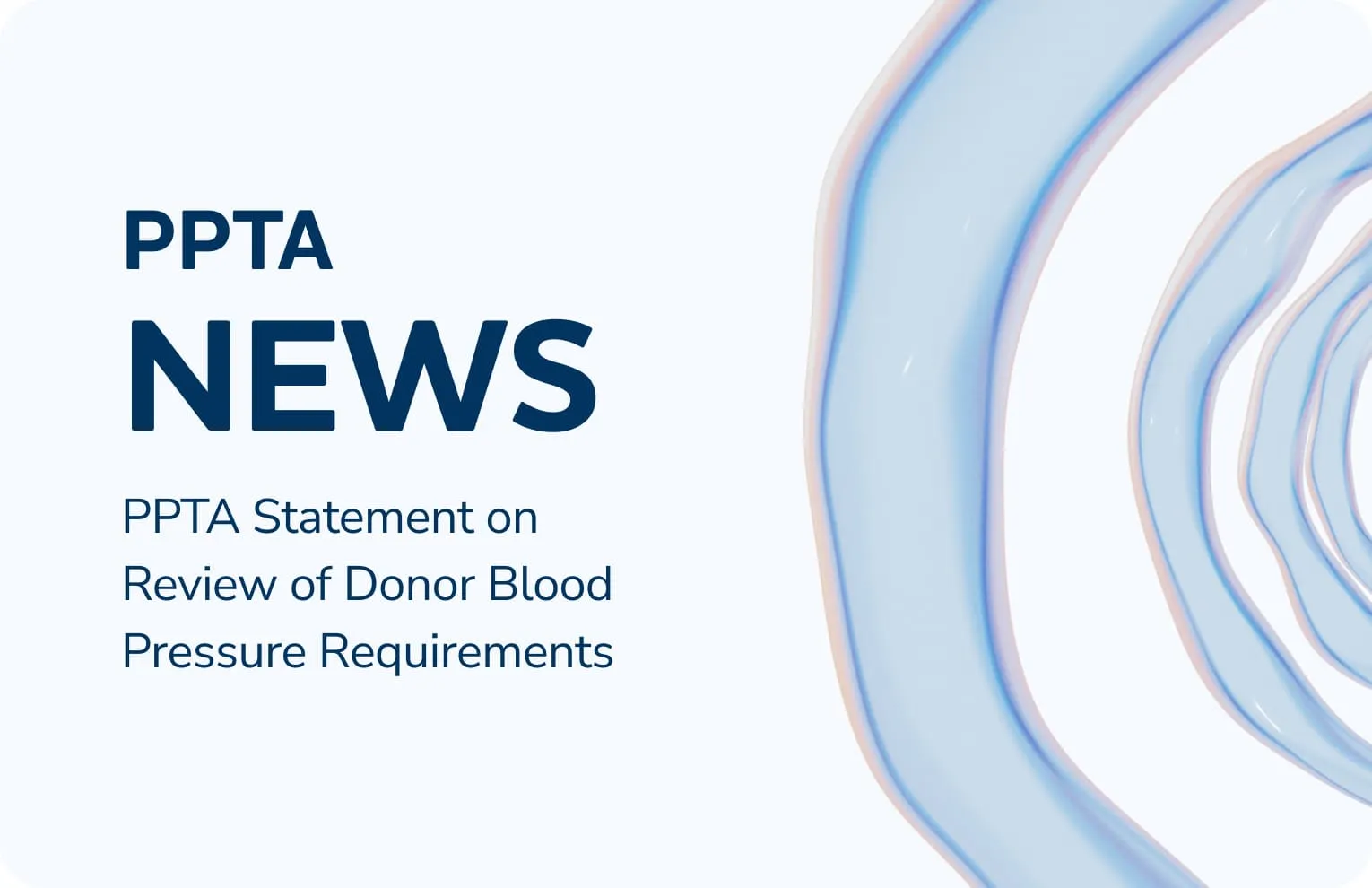The Plasma Protein Therapeutics Association (PPTA) welcomes EU Health Commissioner Kyriakides’ recognition of the importance of plasma donation in her observance yesterday of World Blood Donor Day. By noting plasma’s role in the manufacture of plasma-derived medicinal therapies (PDMPs) for people with a range of life-challenging diseases, as well as its potential role in treating people with COVID-19, Commissioner Kyriakides rightly notes that “donating plasma is therefore now more important than ever.”
Thanks to the support of the European Commission, blood and plasma collection centres have been considered essential infrastructures throughout the COVID-19 pandemic. Whilst extensive efforts were put in place by our members’ collection centres to remain operational, due to confinement measures and social distancing measures put in place by national governments, plasma collection has declined in the past few months of the pandemic.
The availability of PDMPs is reliant on enough plasma being collected and manufactured into these lifesaving therapies. The plasma needed for manufacturing is acquired through whole blood donation (recovered plasma) or through plasma donation in a process called plasmapheresis (source plasma). In Europe, around eight million litres of donated blood plasma are used to make life-saving medicines. Research shows, however, that approximately 13 million litres are needed to meet European patients’ clinical needs.1
Around 300,000 European patients rely on PDMPs to treat a variety of rare and chronic and/or genetic diseases and serious, often life-threatening medical conditions.2 For individuals with these conditions, PDMPs replace their missing or deficient proteins. Without these treatments, many patients would either not be able to survive or would have a substantially diminished quality of life and productivity.
“Patients throughout Europe rely on access to plasma-derived products to live normal, healthy lives,” commented Maarten Van Baelen, Executive Director, PPTA Europe. “The European Centre for Disease Prevention3 and Control and the U.S. Food & Drug Administration4 have both noted the decrease in plasma donation during the current pandemic. PPTA understands patients’ needs for these therapies have not decreased and is committed to continuing its advocacy to working with the EU and national authorities to increase plasma donation throughout Europe.”
Today only four European countries5 allow privately-owned plasma collection centres to contribute to the collection of source plasma in the EU. PPTA has long-advocated for an increased coexistence in European countries between the public and private sector to increase plasma collection in Europe .
References:
[1] Vintura European White Paper on the value of plasma derived medicinal products and plasma, 2020
[2] More patients across the European Union are diagnosed every year with life-threatening plasma protein related disorders, such as, immune deficiencies, immune-mediated peripheral neuropathies, Hereditary Angioedema, Alpha 1-Antitrypsin Deficiencies, and Hemophilia and other bleeding disorders. In many cases, PDMPs are the only treatment option for these rare diseases. New indications, improved diagnostic techniques, greater use in emerging markets, and an increased use in cancer treatment-induced secondary immunodeficiency are further contributing to the growing clinical need for PDMPs.
[3] ECDC - Coronavirus disease - 2019 (COVID-19) and supply of substances of human origin in EU/EEA - first update April 2020. More info: https://www.ecdc.europa.eu/sites/default/files/documents/COVID%2019-supply-substances-human-origin-first-update.pdf
[4] U.S. Food & Drug Administration: “Alternative Procedures for Blood and Blood Components During the COVID-19 Public Health Emergency.” More info: https://www.fda.gov/regulatory-information/search-fda-guidance-documents/alternative-procedures-blood-and-blood-components-during-covid-19-public-health-emergency
[5] Germany, Austria, Czech Republic, Hungary
Media Contact:
Mathew Gulick
Director, Global Communications
+1.443.995.6152
mgulick@pptaglobal.org
Created on June 16 2020.





